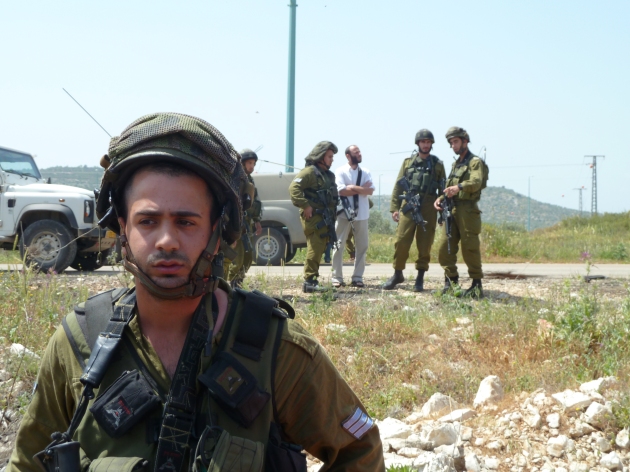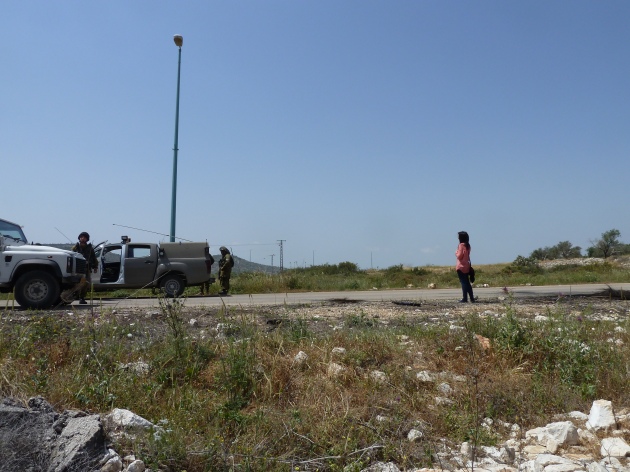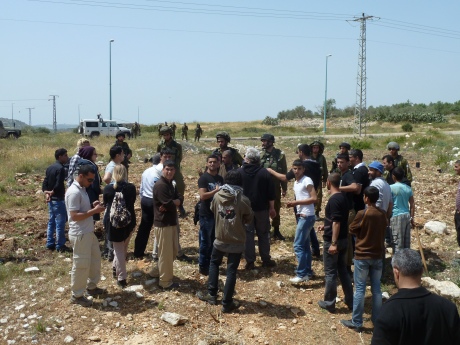This morning we arrived at Qusin, another village close the settlement of Qedumim, to help the villagers plant olive trees. When we get there Riad, one of the organisers, warns us that as we will be planting trees close to the settlement’s industrial zone, we can ‘expect the worst.’
A team from the International Solidarity Movement join us and we set off. It’s a sunny morning and the way to the fields are lined with colourful wildflowers. Although the land belongs to the villagers, they are required to get permission from the army to work on it. Today they have not.
We unload the baby trees and start work. We plant three in memory of victims of the occupation – Arafat Jaradat, Tom Hurndall and Maysara Abu Hamdeya. The army appears and parks a jeep at the side of the road by the next field. The soldiers get out but for now, just stand and watch.
After we have planted a few more trees, the group splits and some villagers head to the other field, closer to where the soldiers are standing. Now the soldiers approach, although rather reluctantly. They look young and bored, and are accompanied by a settler security guard in civilian clothing armed with a semiautomatic. The settler is the only one who seems truly scary and is, I suspect, the only one of this group that actually cares about olives trees or this patch of land.
A soldier wrenches the tools from one of the villagers and carries them off to the jeep. As the soldiers try to stop people planting trees, a scuffle follows in which one of the ISM volunteers is arrested and dragged away by the soldiers. A row ensues, in three different languages.
I try asking some of the soldiers what exactly the problem is with planting trees in this area, but it soon becomes obvious that they neither know or care. I’m starting to see why the settlers have organised their own security; the Israeli army have clearly delegated the task of defending this settlement to it’s doziest unit. These look as if they are the ones who got the lowest scores in the army entrance tests. One of the soldiers is overweight, and even the commander seems barely awake. Are these the ones who tear gassed us on Friday?
Eventually the villagers agree to return to the other field in exchange for the return of the arrested volunteer, the tools, and a promise from the army to contact the army civil administration to check whether they have permission to use their own land.
The civil administration arrives and the row continues. This is absurd. There are now around 20 or so army and police standing in a field negotiating with the village mayor, it’s hot, this is taking ages, and this is all just about planting a few trees on privately owned land, miles away from anyone’s settlement. The commander points out, to everyone’s amusement, that we can’t leave the trees here as he can’t stop the settlers from stealing them. We take photos of the army, the soldiers take photos of us.
Eventually the mayor makes the decision to drop it, so we leave. Who knows if the trees we planted are still there?













